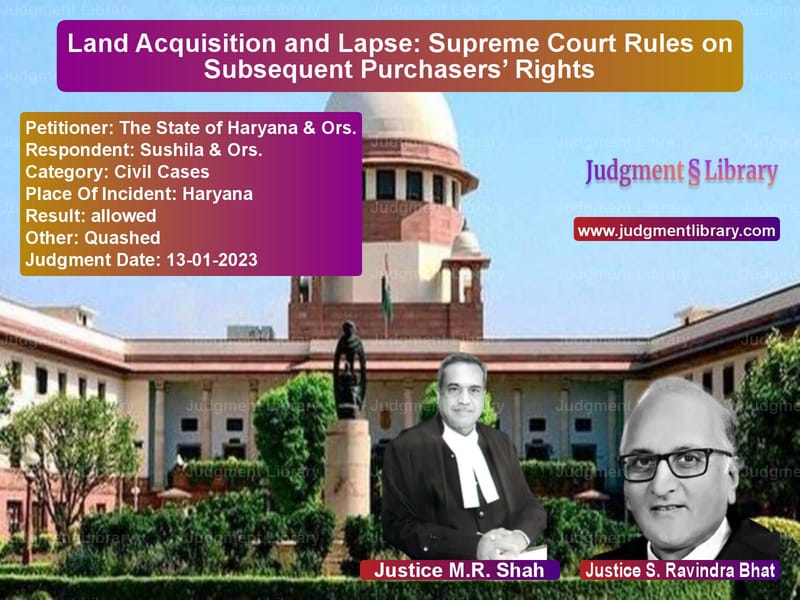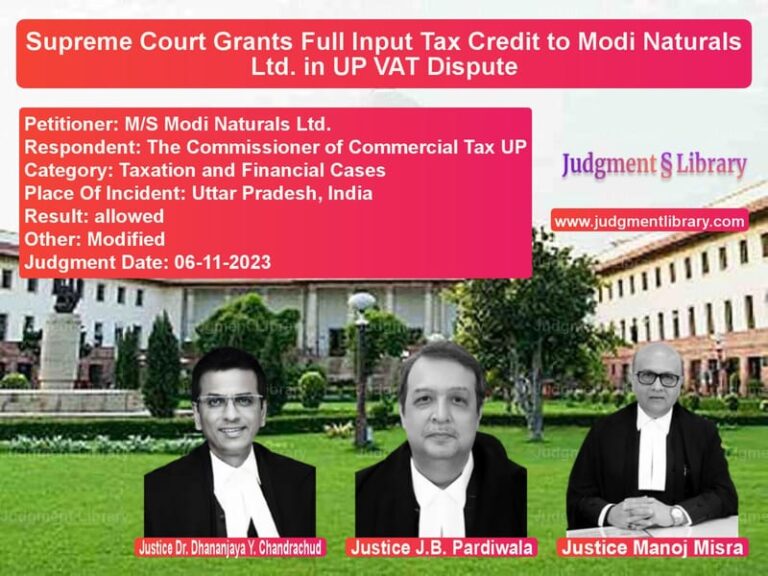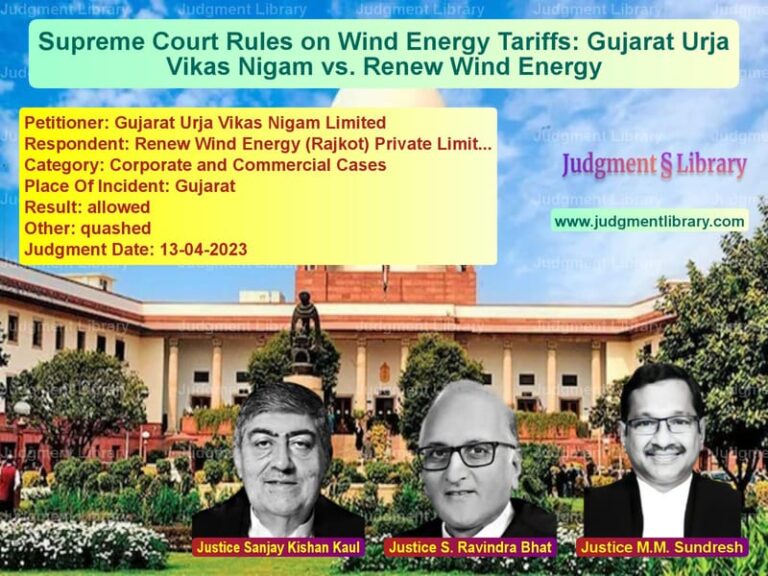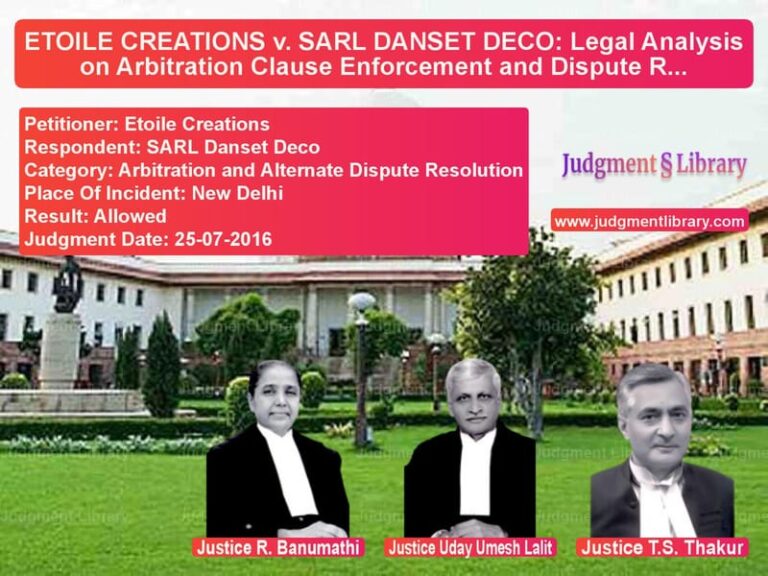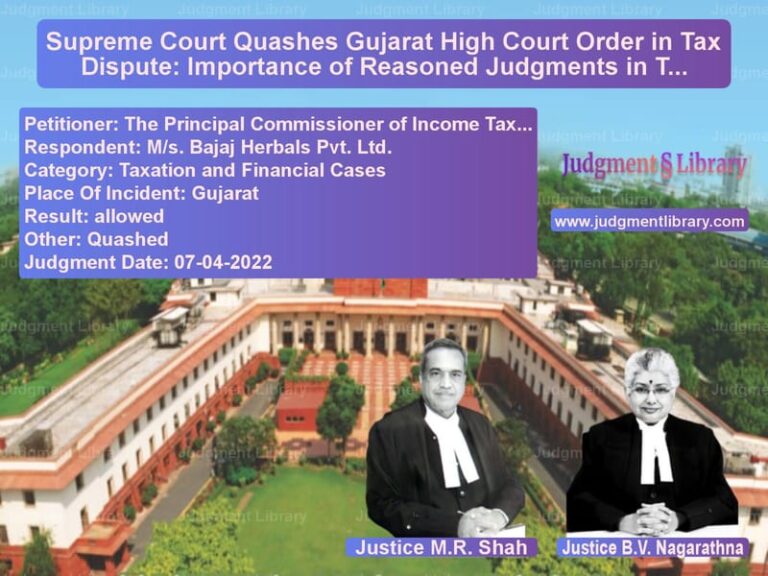Land Acquisition and Lapse: Supreme Court Rules on Subsequent Purchasers’ Rights
The case of The State of Haryana & Ors. v. Sushila & Ors. addresses a significant legal issue related to land acquisition and the rights of subsequent purchasers. The Supreme Court examined whether landowners who purchased property after the issuance of acquisition notifications could claim that the acquisition had lapsed under Section 24(2) of the Right to Fair Compensation and Transparency in Land Acquisition, Rehabilitation, and Resettlement Act, 2013 (“2013 Act”).
Background of the Case
The dispute originated when the High Court of Punjab and Haryana ruled in favor of the landowners, declaring that the land acquisition process had lapsed under Section 24(2) of the 2013 Act. The State of Haryana challenged this decision, arguing that the acquisition was valid and that subsequent purchasers had no legal standing to challenge it.
Legal Issues Considered
The Supreme Court examined the following key legal questions:
- Whether land acquisition lapses if possession has been taken but compensation has not been paid.
- Whether subsequent purchasers have the legal right to challenge acquisition proceedings.
- Whether the High Court erred in applying Section 24(2) of the 2013 Act to declare the acquisition as lapsed.
Arguments by the Appellants (State of Haryana)
The State of Haryana contended that:
- The High Court’s decision was erroneous as possession of the land had been taken and handed over to the Haryana Urban Development Authority (HUDA) on August 4, 2006.
- The original landowners had sold the land to subsequent purchasers, who had no locus standi to challenge the acquisition.
- The compensation had not been paid because the purchasers were not the original owners at the time of the acquisition.
- The High Court failed to consider that possession had already been taken, and therefore, the acquisition could not lapse under Section 24(2) of the 2013 Act.
Arguments by the Respondents (Sushila & Ors.)
The respondents, who were subsequent purchasers of the land, argued that:
- The compensation had not been paid to them, and therefore, the acquisition must be considered lapsed under Section 24(2) of the 2013 Act.
- They were in possession of the land and had not been dispossessed by the authorities.
- Since they were now the legal owners, they had the right to challenge the acquisition process.
Supreme Court’s Judgment
The Supreme Court ruled as follows:
- Subsequent purchasers have no right to challenge the acquisition: The Court held that individuals who purchased land after the issuance of acquisition notifications cannot claim that the acquisition has lapsed.
- Acquisition does not lapse if possession has been taken: The Court reaffirmed that under Section 24(2) of the 2013 Act, both conditions (non-possession and non-compensation) must be met for lapse to occur.
- Since possession was taken, acquisition remains valid: The Court found that government records confirmed possession had been taken, so the acquisition did not lapse despite non-payment of compensation.
- The High Court’s decision was unsustainable: The judgment was set aside, and the acquisition remained valid.
Analysis of the Judgment
The ruling clarifies the interpretation of Section 24(2) of the 2013 Act and prevents landowners from using legal loopholes to challenge completed acquisitions.
Implications for Landowners
- Subsequent purchasers cannot claim lapse of acquisition under Section 24(2).
- If possession has been taken, the acquisition remains valid under the law.
Implications for the Government
- The ruling strengthens the government’s position in defending land acquisitions.
- Authorities must ensure proper documentation of possession to avoid disputes.
Implications for Future Land Acquisition Cases
- The ruling provides a definitive interpretation of Section 24(2) of the 2013 Act.
- It prevents unnecessary litigation by clarifying that lapse occurs only when both possession and compensation conditions are unmet.
Conclusion
The Supreme Court’s judgment upholds the validity of acquisitions where possession has been taken, ensuring that public projects and development initiatives are not hampered by legal ambiguities. This ruling serves as a crucial precedent for similar cases in the future.
Petitioner Name: The State of Haryana & Ors..Respondent Name: Sushila & Ors..Judgment By: Justice M.R. Shah, Justice S. Ravindra Bhat.Place Of Incident: Haryana.Judgment Date: 13-01-2023.
Don’t miss out on the full details! Download the complete judgment in PDF format below and gain valuable insights instantly!
Download Judgment: the-state-of-haryana-vs-sushila-&-ors.-supreme-court-of-india-judgment-dated-13-01-2023.pdf
Directly Download Judgment: Directly download this Judgment
See all petitions in Property Disputes
See all petitions in Public Interest Litigation
See all petitions in Judgment by Mukeshkumar Rasikbhai Shah
See all petitions in Judgment by S Ravindra Bhat
See all petitions in allowed
See all petitions in Quashed
See all petitions in supreme court of India judgments January 2023
See all petitions in 2023 judgments
See all posts in Civil Cases Category
See all allowed petitions in Civil Cases Category
See all Dismissed petitions in Civil Cases Category
See all partially allowed petitions in Civil Cases Category

